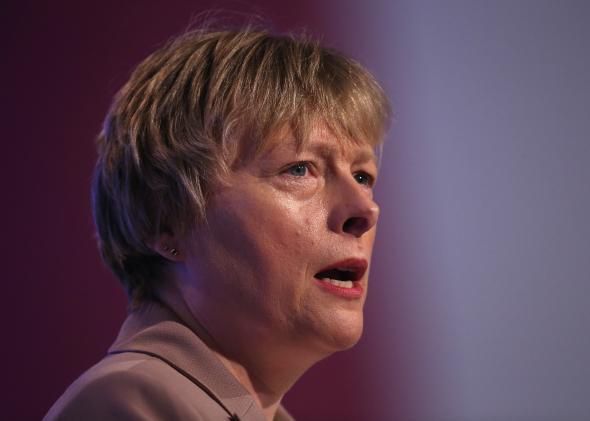This isn’t a great moment to be a liberal in Britain. In last Thursday’s general election, our largest left-wing party was eviscerated, leaving the Conservative Party with enough of a majority to do pretty much whatever it wants over the next five years. (So far, this appears to be cutting disability benefits, scrapping the Human Rights Act, and bringing back foxhunting.)
But while the country now has the least progressive government it’s seen since the early ’90s, there are a few sources of liberal glee: Britain now has 191 female MPs, more than ever before, and the number of black and ethnic minority legislators increased from 27 to 43. Oh, and somehow, fusty old Britain now holds the world record for LGBTQ political representation.
Of course, collecting statistics on LGBT political representation isn’t easy, and that record is really for out legislators. We’ll never know if closeted or undeclared LGBTQ representation is higher in another country where candidates feel less able to state their sexual preference in public, or if Britain had its best election for queer candidates half a century ago.
The data we do have comes from Professor Andrew Reynolds, the director of the University of North Carolina’s LGBT Representation and Rights Research Initiative, and so far, he tells me, 29 of the United Kingdom’s 650 MPs are openly lesbian, gay, or bisexual—about 4.5 percent of the House. (Of these, 12 are Conservative, 13 Labour, and four represent the Scottish National Party.) That number includes those politicians who were already out and a few who have contacted Reynolds and asked to be added to the list. As Reynolds told me over email, “It’s not our job to out people—merely to report who they say they are.”
Estimates of the proportion of LGBTQ people in the U.K. population vary wildly, from the 1.5 percent quoted by the Office of National Statistics to the 5 to 7 percent generally used by the government. Based on these figures, the House of Commons may reflect the nation as a whole. In fact, it may be more representative when it comes to queer MPs than females—women still make up less than 30 percent of the House of Commons.
Reynolds spent part of the British election campaign out on the doorsteps with LGBT candidates, and he reports that in most cases the candidate’s gender identity or sexual orientation was of “little consequence” to the average voter. This was borne out in polling booths: Queer candidates tended to match or do better than their party’s overall performance, even when, as in one London constituency, a homophobic smear campaign was reportedly used to try to turn Orthodox Jewish voters away from an openly gay candidate. The four out transgender candidates (including Emily Brothers, the Labour Party’s first), all outperformed their parties.
But it’s not all good news. The Conservatives’ new culture secretary and minister for women and equalities both voted against marriage equality in 2013. (Luckily, the bill passed without their help.) And the new cohort of out MPs isn’t particularly diverse: All 29, and all but two of the 150-odd LGBTQ candidates who ran, are white. Only four of the out MPs are women, and the House of Commons still lacks transgender representation.
But some of those numbers could change. In fact, Reynolds’ tally has risen since I first spoke with him on Monday. Originally, the figure stood at 27, but two more MPs—one male, one female—contacted him and agreed to be added to the list. He hopes the total will keep climbing: “Those numbers are likely to rise as newly elected MPs feel comfortable enough to come out to the world beyond their immediate circle of family and friends,” he told me
So while the United Kingdom only really holds the record for LGBTQ MPs willing to make themselves known, it still says great things about Britons’ attitudes to LGBTQ people. It seems the U.K. electorate cares far more about its trash collection, health service, and perhaps even foxhunting than about its MPs’ sexuality. Which is, of course, exactly how it should be.
Update, May 13: According to Professor Reynolds, more MPs have added their names to his list of LGB parliamentarians. The total is now 31, including seven Scottish National Party MPs—12.5 percent of the delegation,
